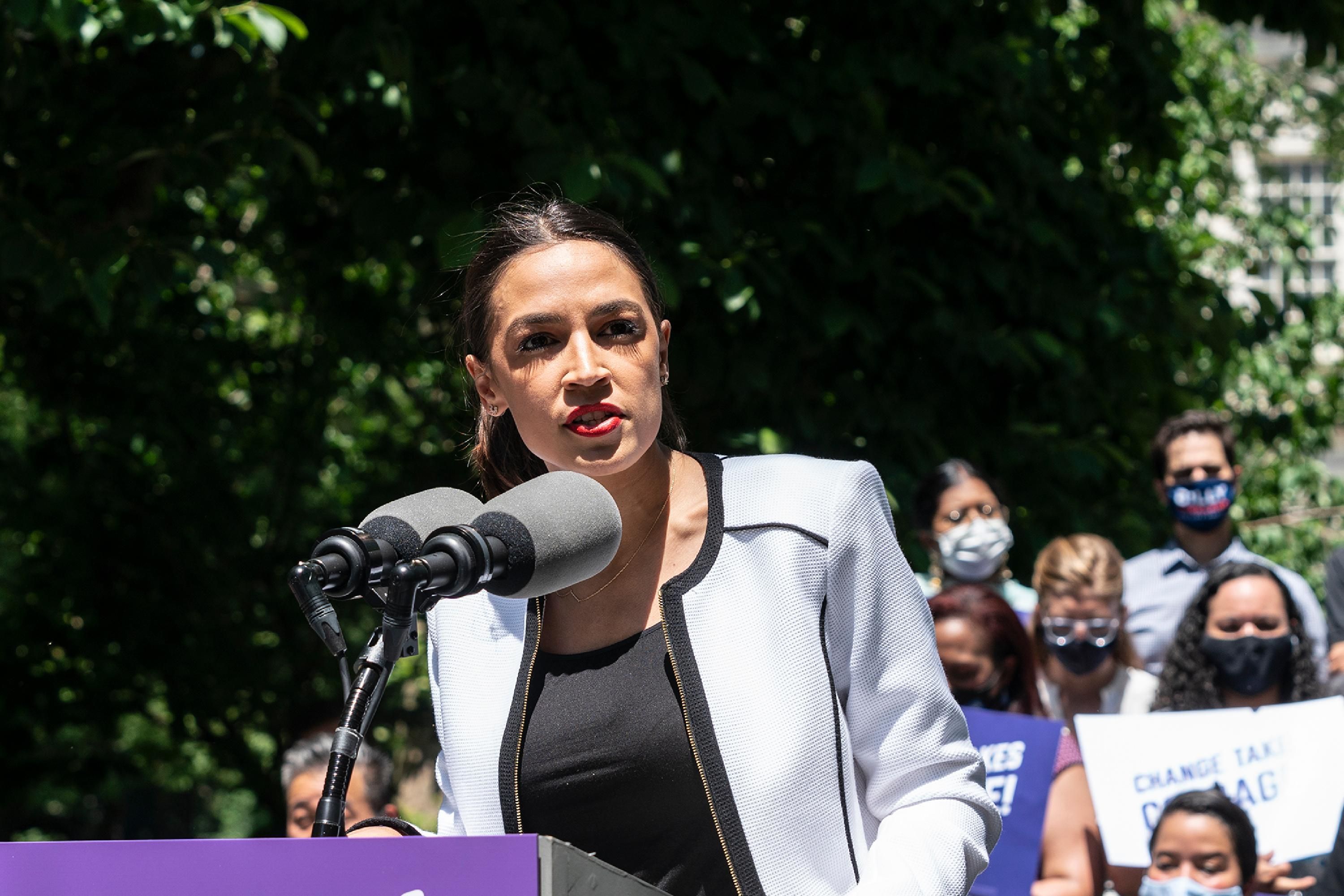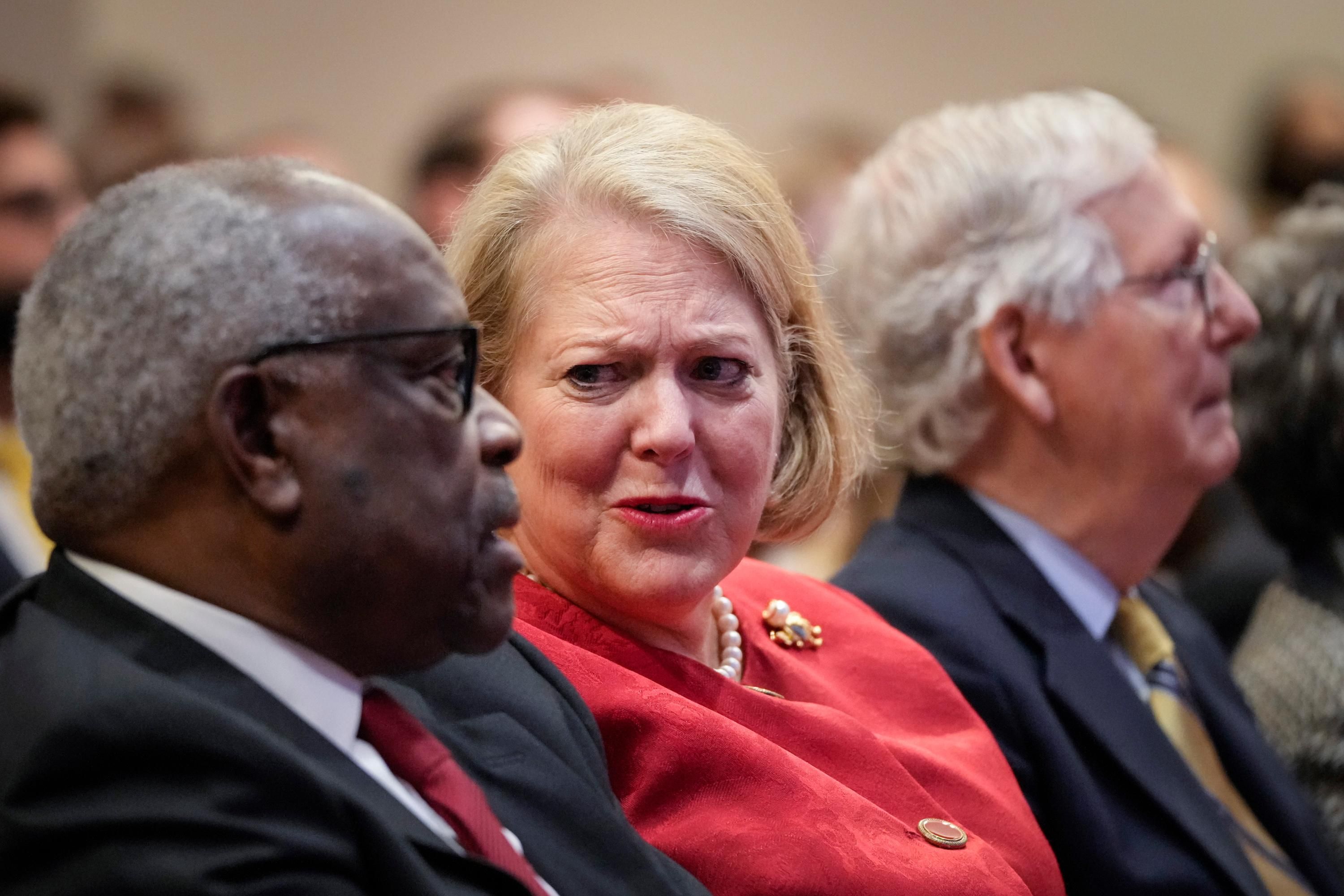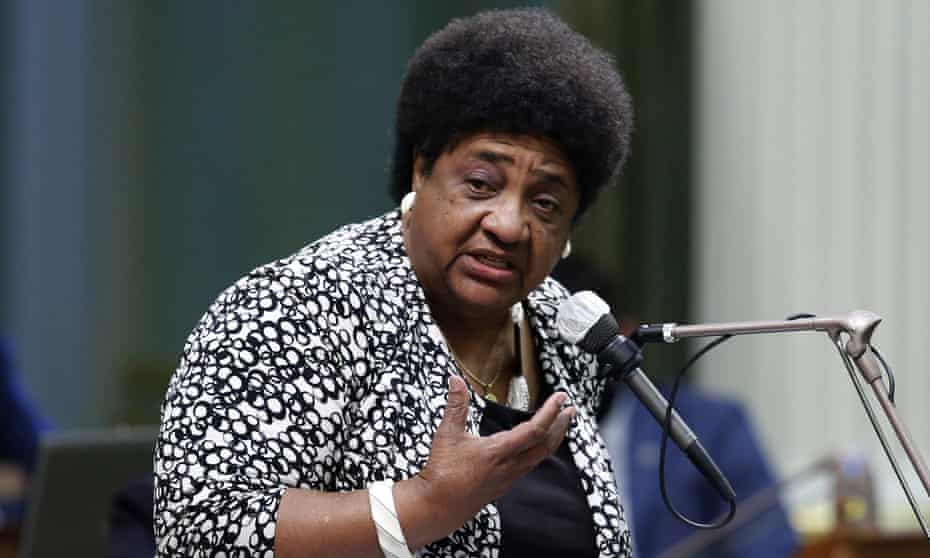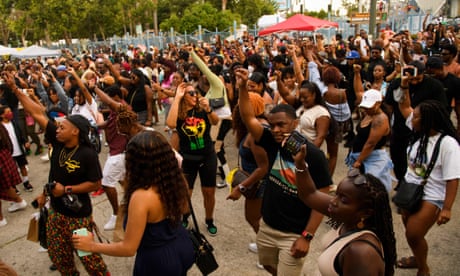"Failing to fund the global fight against Covid-19 is a choice to extend the pandemic," said one public health expert.
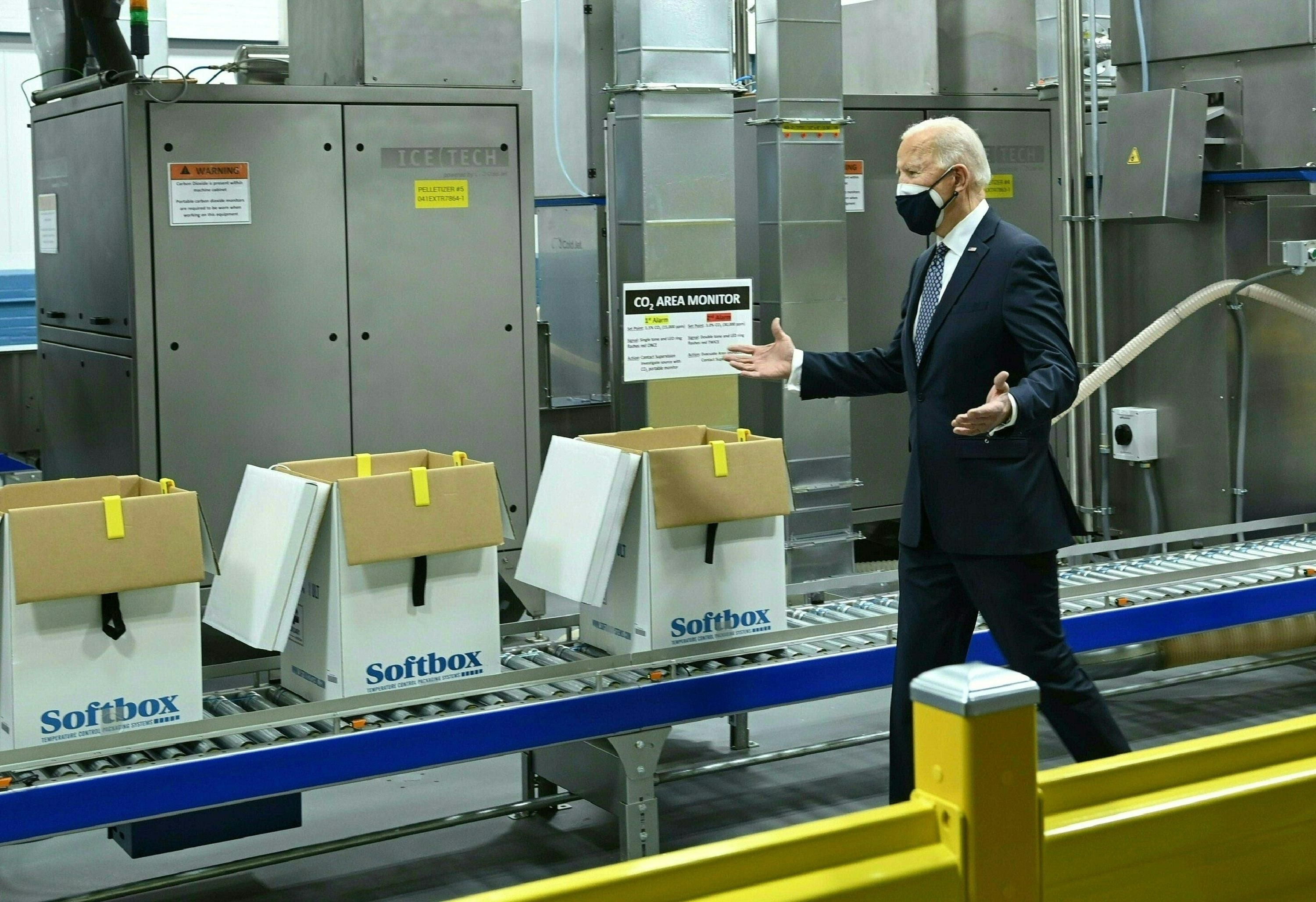
President Joe Biden tours the Pfizer Kalamazoo Manufacturing Site on February 19, 2021 in Portage, Michigan. (Photo: Brendan Smialowski/AFP via Getty Images)
KENNY STANCIL
One day after President Joe Biden asked Congress to approve a record-shattering $813 billion U.S. military budget, public health advocates are lamenting that his Fiscal Year 2023 spending blueprint requests roughly 163 times less funding to help mitigate the Covid-19 pandemic on a global scale.
"Ending the pandemic is a choice."
"The defense budget request is $813 billion. By comparison, the White House has asked for just $5 billion to fight global Covid, or $22.5 billion to fight Covid in total," Peter Maybarduk, director of Public Citizen's Access to Medicines program, said Tuesday in a statement.
"That's roughly 3% of defense spending to help end a pandemic that has taken more American lives than any war, and nearly 20 million lives worldwide so far," he added, referring to estimates of excess mortality.
Lindsay Koshgarian, director of the National Priorities Project at the Institute for Policy Studies, said Monday in a statement that "at $813 billion, the president's request for the Pentagon exceeds even the $782 billion budget that Congress just passed by $31 billion. The increase alone is twice the amount that Congress refused for ongoing Covid aid for antivirals, vaccines, and tests, after nearly one million Americans have died of the virus."
Earlier this month, as Common Dreams reported, Democratic congressional leaders removed $15.6 billion in coronavirus relief from a recently passed $1.5 trillion omnibus spending bill after Republican lawmakers, questioning the need for any new funding to fight the pandemic, insisted on repurposing money already allocated to state programs.
Democratic lawmakers are reportedly trying to find a way to pass a coronavirus aid package separately. In the meantime, however, the defunding of the U.S. pandemic response—which the GOP spearheaded as infections caused by an Omicron subvariant surged in Europe and Asia, sparking fears of an imminent wave at home—has led to what one physician called "the rationing of Covid-care by ability to pay."
Last week, a federal health agency tasked with covering Covid-19 testing and treatment for uninsured people in the U.S. stopped accepting claims, and those patients will now be charged $125 for a single PCR test.
As lawmakers discuss Biden's funding request for the domestic and international pandemic response, Maybarduk pointed out that "health experts called for $17 billion from Congress to resource the global fight," emphasizing that "$5 billion is the bare minimum needed to prevent global vaccination, testing, and emergency relief from screeching to a halt."
In a recent report documenting the harmful economic impacts of global vaccine inequity on informal workers and other vulnerable populations in low-income countries, the United Nations estimated that it would cost just $18 billion to vaccinate 70% of the world's population by mid-2022.
Public Citizen, for its part, has developed a blueprint showing how the U.S., with a $25 billion investment, could establish regional manufacturing hubs to produce eight billion lifesaving doses in less than a year.
Related Content

Rich Nations Could 'Make Enough Vaccine for the World' With Just $25 Billion: Analysis
Kenny Stancil
"Ending the pandemic is a choice," said Maybarduk. "Congress must step up and pass funds to support the White House's already-pared back request. Failing to fund the global fight against Covid-19 is a choice to extend the pandemic, to accept preventable suffering and insecurity for all, and to live with the knowledge that, deep in the time of the world's greatest need, the United States gave up."
Robert Weissman, president of Public Citizen, wrote Monday on social media that as elected officials race toward a trillion-dollar Pentagon budget, "this shameful spending makes the U.S. less secure." Washington, he warned, will be "more likely to engage in warfare" and "no more able to address pandemics or climate chaos."
According to Stephen Semler of the Security Policy Reform Institute, Biden's budget request "is tantamount to climate change denialism." Semler found that despite mentioning some version of "tackling the climate crisis" nearly a dozen times in his proposal, the president wants to spend 18 times more on the U.S. military-industrial complex—a bigger polluter than 171 countries—than he does on slashing greenhouse gas emissions.
Koshgarian, meanwhile, noted that "the U.S. military budget is already more than the next 11 countries combined, 12 times more than Russia's, and higher than at the peak of the Vietnam War or the Cold War."
"If more militarism were the key to a stable and secure world," she added, "we would already be there."
Our work is licensed under Creative Commons (CC BY-NC-ND 3.0). Feel free to republish and share widely
